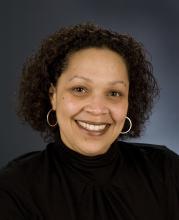Charles Edmondson Historical Lectures
The Charles Edmondson Historical Lectures, sponsored by the Department of History at Baylor University, are made possible by an endowment established by Dr. E. Bud Edmondson of Longview, Texas, to honor his father, Mr. Charles S. B. Edmondson. Baylor University and the Waco community are grateful to Dr. Edmondson for his generosity.
The Department of History featured two free and open to the public events for our 2024 Edmondson Lecture Series speaker, Dr. Leslie M. Alexander.
They were held on February 20th, 2024 and February 21st, in Armstrong Browning Library, 710 Speight Ave. Waco, Texas 76706, in the Foyer of Meditation. Both lectures were held from 3:30 - 5:00 pm.
Dr. Leslie Alexander is the Dr. Martin Luther King, Jr. Professor of History at Rutgers University and is a Fellow at the Carr Center for Human Rights Policy at Harvard University. A specialist in early African American and African Diaspora history, she is the author of African or American?: Black Identity and Political Activism in New York City, 1784-1861, and Fear of a Black Republic: Haiti and the Birth of Black Internationalism in the United States. She is also the co-editor of three additional volumes, including Ideas in Unexpected Places: Reimagining the Boundaries of Black Intellectual History. Her current research, which appears in The 1619 Project: A New Origin Story, examines how surveillance of free and enslaved Black communities in the colonial and antebellum eras laid the foundation for modern-day policing. A three-time Ford Foundation fellowship recipient, Alexander is a past President of the Association for the Study of the Worldwide African Diaspora (ASWAD) and serves on the Advisory Councils for the National Council for Black Studies, the Journal of African American History, Black Perspectives, The Black Scholar, and the Montpelier Foundation Board.
Dr. Alexander's first lecture was titled The Cradle of Hope: How Haitian Independence Inspired the Birth of Black Internationalism in the United States. Haiti’s emergence as a free, sovereign nation lit a beacon of hope for Black people across the African diaspora during the nineteenth century. In this talk, Leslie Alexander chronicles how Haitian sovereignty shaped Black political consciousness in the United States, especially among those demanding freedom. For them, Haiti was their “cradle of hope”—the only nation on earth where Black people could live free and equal. All their dreams for the global Black freedom struggle rested on Haiti’s shoulders, prompting free and enslaved Black people in the United States to wage an unyielding battle to defend Haiti and its sovereignty. In so doing, they gave birth to a new Black internationalist consciousness—one that not only demanded an end to slavery, but also insisted on full freedom, equality, and sovereignty for Black people throughout the African diaspora.
Her second lecture was titled How We Got Here: Slavery and the Making of the Modern Police State. Since 2020, when George Floyd and Breonna Taylor were suffered brutal deaths at the hands of police, over 3,000 people have been killed by police officers in the United States. More than 1,200 people were killed in 2023 alone, more than any other year in the past decade, and Black people are still three times more likely to die from police violence than white people. So, how did we get here? Why, in the twenty-first century, does the United States have the largest prison population on the planet, and why are Black people so painfully overrepresented in incarceration and deaths at the hands of police? In this talk, Leslie Alexander will discuss how surveillance and policing of Black communities began in the earliest days of the colonial era, as white settlers sought to extract land from the indigenous population and enslave Africans to work the land. She will also illustrate how colonial authorities cultivated a system of surveillance designed to extract labor, loyalty, and submission from the enslaved, and the complex web of legal codes, patrols, and militias that emerged in the eighteenth and nineteenth centuries to track and govern Black people’s lives in sickening detail. Understanding this history reveals that we cannot fully understand the modern problems of policing and incarceration until we understand their origins under slavery.
